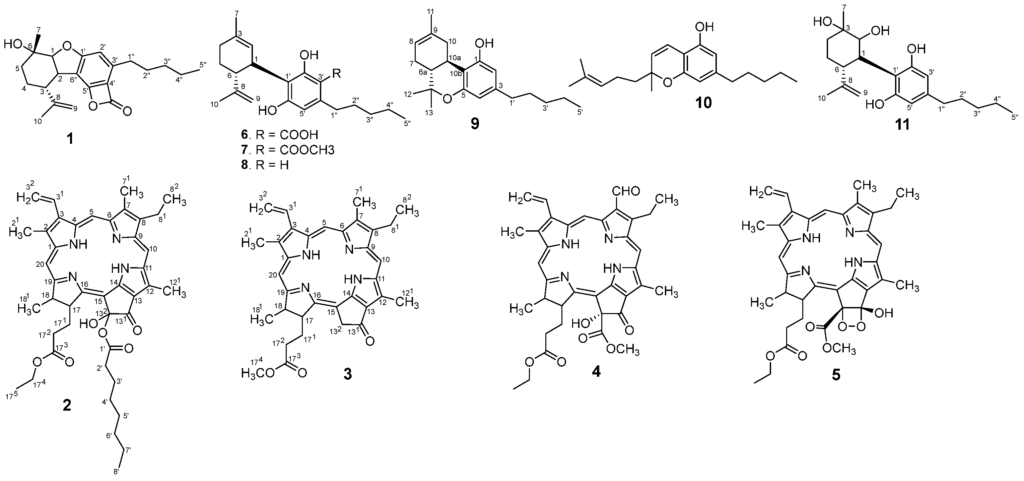Newly discovered cannabinoids isolated from marijuana flowers were found to inhibit the growth of neuroblastoma cells, according to a new peer-reviewed study published in the journal Pharmaceuticals.

Researchers in South Korea have discovered two previously unidentified cannabinoids and a set of chlorin-type metabolites in marijuana flowers that may hold promise in treating neuroblastoma, a type of cancer that develops from immature nerve cells.
The study involved a chemical analysis of Cannabis sativa flowers, which led to the isolation of eleven distinct compounds using various chromatography techniques. Of these, eight were identified as cannabinoids, including two that had not been reported in scientific literature before: cannabielsoxa and 132-hydroxypheophorbide c ethyl ester.
The compounds were tested on SK-N-SH neuroblastoma cells using the MTT method, which measures cell viability. Researchers found that several cannabinoids—particularly compounds labeled 4 through 10—exhibited strong inhibitory effects on the cancer cells. In contrast, the chlorin-type metabolites showed weaker activity.

The researchers used nuclear magnetic resonance (NMR) and mass spectrometry to identify the structure of the isolated compounds, and docking analysis was used to further evaluate their potential anticancer mechanisms. The findings suggest that certain cannabinoids in marijuana could serve as a basis for future anti-neuroblastoma therapies.
The study was conducted by scientists from Wonkwang University, Kyung Hee University, and the National Institute of Horticultural and Herbal Science.







